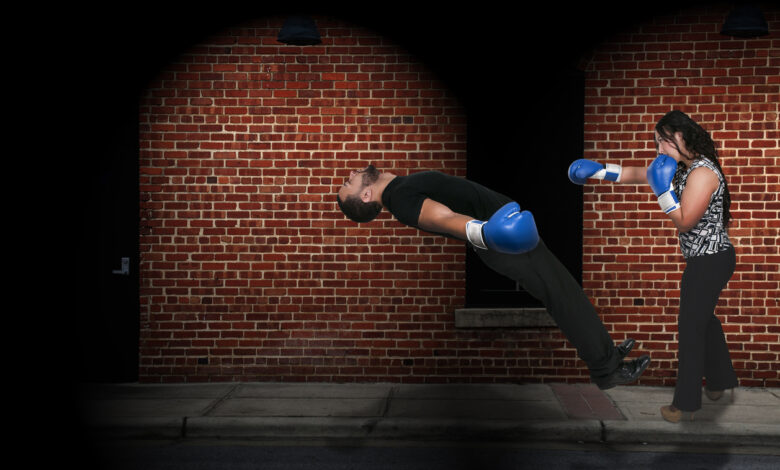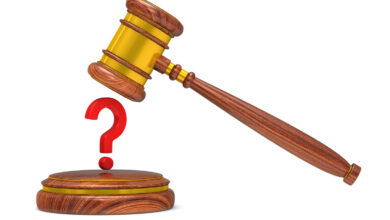Judge Cannon’s New Game Plan

DOES JUDGE AILEEN CANNON have a game plan to get Donald Trump off the hook in Special Counsel Jack Smith’s classified documents case? Or does it only appear that way, and she is just making it up as she goes along?
Until last week, it looked like Cannon was intent on inflicting the death of a thousand cuts on Smith’s case. She had delivered a series of small, legally unsound orders in Trump’s favor—improperly appointing a special master, restricting the government from using its own documents in its investigation, allowing the identity of witnesses to be made public despite the grave risk of threats and harassment, taking unserious arguments about the Espionage Act and the Presidential Records Act seriously. Collectively, these rulings seemed designed to whittle away at the edges of Smith’s case without killing it in a single bold stroke.
If that was indeed her strategy, it wasn’t working. All Cannon had accomplished with her string of bizarre rulings was to make herself a figure of near-universal ridicule. Cannon was inflicting more damage on herself than on Smith, whose case remained alive and well.
In her two most recent rulings, however, Cannon appears to have changed course. Instead of killing Smith’s case with a thousand cuts, she may now be trying to kill the case with kindness.
If this shift represents a change in Cannon’s strategic thinking—and it sure looks like it does—then it could pose a serious threat to Smith’s case.
Like a football coach faced with a poor first-half performance, Cannon may be making halftime adjustments, changing her game plan. Her two most recent rulings suggest that she now understands that the most efficient and effective way to kill Smith’s case isn’t by inflicting a series of small wounds before the case goes to trial, but by delivering a single fatal blow during the trial. All she has to do is wait until a jury is sworn and Smith closes the prosecution’s case. At that point, she can enter an unappealable order of acquittal, setting Trump free forever from the charges in the indictment, protected by the constitutional prohibition against double jeopardy.
But Cannon can’t enter an order of acquittal if she doesn’t stay on the case. Staying on the case is thus the single, essential condition necessary for Cannon to assure Trump’s acquittal. It is the only thing that matters prior to the start of the trial.
Issuing more sketchy pre-trial rulings in Trump’s favor—the kind she had been making on a fairly regular basis until just over a week ago—only threatens to have Cannon removed from the case before she can enter a definitive order in Trump’s favor. Orders like that would only give Smith more ammunition to ask the Eleventh Circuit Court of Appeals to remove her from the case.
Better to kill Smith’s case with kindness. Rule in his favor on everything before the trial starts. Don’t give him an entrée to the court of appeals—it’s never a good look for a prosecutor to seek the removal of a judge who is consistently ruling in his favor.
Cannon’s two most recent orders suggest that she may have adopted this new strategy.
First, in an order entered last week, Cannon executed a savvy retreat on Trump’s preposterous claim that the Presidential Records Act somehow prohibited him from being charged under the Espionage Act for improperly removing classified national security documents from the White House, storing them in unsecured locations all over his Mar-a-Lago social club, and then obstructing justice by lying to and concealing documents from the government.
Cannon denied Trump’s motion to dismiss the case pursuant to the PRA and did her best to explain away her incomprehensible order last month requiring both sides to propose jury instructions based on two “competing scenarios,” each of which badly misstates the law and gives credence to arguments that are on their face absurd.
Just kidding, Cannon said in effect. Golly, all she was trying to do was “better understand the parties’ competing positions.” What could be wrong with that?
Then, on Tuesday, Cannon did another about-face, issuing an order that backtracked on an earlier order refusing to seal information that disclosed the identity of government witnesses, thereby subjecting them to the possibility of threats, intimidation, and physical harm. Cannon admitted in her order that she had applied the wrong legal standard in her earlier ruling, but blamed Smith for not having done enough to help her find the right law.
JUDGE CANNON’S BACKTRACKING on those two previous orders—relating to the Presidential Records Act and the identity of witnesses—is mostly in Special Counsel Smith’s favor. But the orders do not conclusively shut off his entrée to the Eleventh Circuit, should he wish to act now to make the case for her removal.
For starters, Cannon didn’t entirely take the Presidential Records Act out of the case, as she should have. She merely noted that in deciding this specific motion she was “bound by the four corners of the Superseding Indictment.” Since the indictment makes no mention of the Presidential Records Act, she reasoned, that law could not provide a “pre-trial” basis to dismiss.
That’s judge-speak for “Watch your back, sucker.”
And Cannon’s order reversing course on disclosure of the identity of government witnesses, while again facially in Smith’s favor, contained enough anti-Smith snark to feed the narrative that something is rotten in the state of West Palm Beach.
This may not be the kind of full-on lunacy that would provide Smith with a rock-solid winner to convince the Eleventh Circuit to remove Cannon from the case, but it doesn’t shut him out entirely. Combined with Cannon’s earlier pattern of issuing legally indefensible pro-Trump orders, Smith might still have enough to convince the court of appeals to remove her from the case.
If Smith did wish to make the case for the judge’s removal, how ought he to proceed?
Some commentators have suggested that the special counsel should seek to improve his case with the Eleventh Circuit by filing with Judge Cannon a “motion in limine,” a pre-trial motion seeking the exclusion of Trump’s Presidential Records Act “defense” from the trial. If Cannon denies that motion, the argument goes, Smith will have everything he needs to convince the court of appeals to remove her from the case.
But what if Cannon grants the motion?
If Cannon now has a strategic plan that requires keeping herself on the case at all costs, granting a motion in limine to remove the Presidential Records Act from the case would be consistent with that strategy. It would weaken Smith’s argument that she has an anti-prosecution bias, making it virtually impossible for him to convince the Eleventh Circuit that Cannon should be removed. And it would do nothing to prevent her from entering an order of acquittal later on.
No, in the war of nerves between Cannon and Smith, the Presidential Records Act is a distraction: Cannon can just as easily enter an order of acquittal with it out of the case as she can with it in the case. She can just rule that the evidence introduced by Smith is “insufficient” to support a conviction. The battle—taking the PRA out of the trial—would be won. But the war—getting a fair trial by removing Cannon from the case—would be lost.
IF CANNON IS DETERMINED to acquit Trump, the smart move would be for her to keep deciding every pre-trial motion in favor of Smith, not Trump, thus ensuring that she stays on the case, just where she needs to be to issue an order of acquittal at the close of Smith’s case.
The only way Smith can prevent that is to go to the Eleventh Circuit now. It comes down to a matter of assessing patterns and weighing risks. There is no way to know for certain that Cannon is executing a new plan to acquit Trump, and there is a risk that if Smith goes to the court of appeals too soon, it will deny his request to remove Cannon from the case.
But the risk of being rebuffed by the Eleventh Circuit is outweighed by the risk of allowing Cannon to engage in judicial rope-a-dope that would exhaust Smith’s case for Cannon’s removal until it is too late.
Smith may not be able to know exactly what Cannon will do. But he does know what she can do. And based on what she has done, that should be enough for him to act now.




